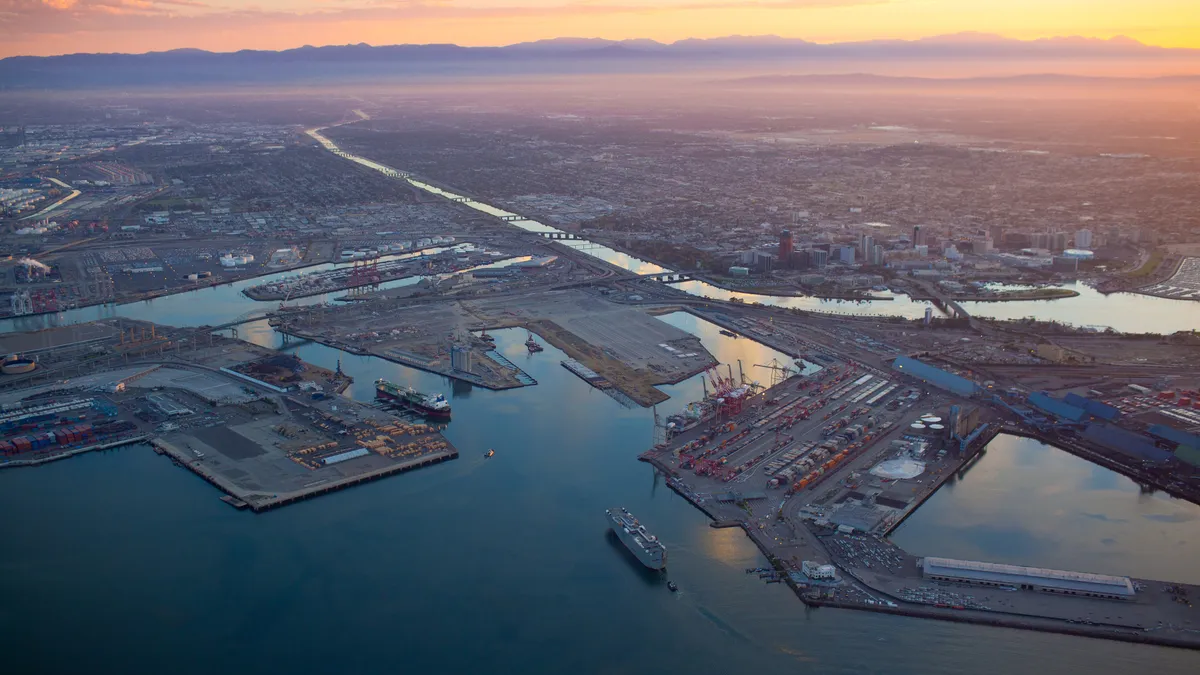Dive Brief:
- Terminals at the ports of Los Angeles and Long Beach may launch a new model for the OffPeak gates program on Nov. 19, wherein truckers pay a traffic mitigation fee during all shifts to fund the night gates, John Cushing, CEO of PierPass, said at a Harbor Trucking Association (HTA) meeting on Wednesday.
- Currently, truckers pay a fee during the day shifts to fund a "second shift" at night, as part of the OffPeak program. This led to unintended inefficiencies, however, such as truckers choosing to primarily use the night gate system in order to avoid a fee altogether.
- If the Federal Maritime Commission approves the changes, the new flat fee for carriers would be $31.52 per TEU and $63.04 for all other-sized containers, instead of $72.09 per TEU and $144.18 for other-sized containers currently charged during the day.
Dive Insight:
OffPeak 2.0 is designed to keep night gates open at Los Angeles but more evenly distribute the cost of those operations, now that the benefits of an additional night shift have been proven.
For context, Cushing gave the example of what harbor trucking looked like in 2002 and 2003, before the OffPeak program first began. At the time, 88% of containers were picked up during the day, and congestion was the norm. Today, cargo is moved both night and day — at a roughly 50/50 ratio — and since the start of OffPeak, Cushing said 43 million trucks have been diverted to operate at night or during the weekend.
But recent shifts in terminal operations have challenged the night gates' efficiency, and industry stakeholders pushed for a change as a result. One of the largest inefficiencies came about when terminals began instituting appointment systems, thereby removing truckers' flexibility to choose the shift during which to operate.
Prior to the meeting, Weston LaBar, CEO of the Harbor Trucking Association, told Supply Chain Dive this created an "inequity" at the night gates. Large shippers, he said, would often get priority to pick up their products at night given their volumes. In turn, this would leave the small shippers, who can less afford a traffic mitigation fee, to pay the cost of night gates while rarely getting to see the benefits.
Meanwhile, Cushing made clear, terminals are not breaking even while they operate the night gates.
In 2017, night gate operations cost PierPass $274 million, but the company only collected $197 million from the traffic mitigation fees to subsidize the operations. As more and more ports around the country adopt these programs, Cushing said it is their challenge to find ways to make it both efficient and financially sustainable.















